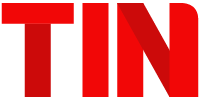CEO: Jeff Douglas
REGION: Auckland
YEAR FORMED: 1967
EMPLOYEES: 720
REVENUE: $221,757,000
www.douglas.co.nz
Douglas is NZ’s most significant pharmaceuticals manufacturer. Export sales contribute to almost two thirds of the group’s total turnover. They are the world’s largest supplier of generic isotretinoin, a molecule primarily used to treat skin conditions. As a family-owned business, they are committed to onshore manufacturing in Henderson, with with additional manufacturing capability in Fiji.
In June 2021, the Douglas Innovation Building was completed, adding another 4,500m2 of research and development capacity to their existing campus. This is the largest medical R&D facility in the country. It includes pilot scale product development suites and laboratories, as well as specialised capabilities to handle highly potent and toxic products.
To support the growth of their export business they scaled up their workforce, roughly doubling their staff over the last seven years. They invest in a digital technology to track employee engagement and are now using it to foster innovation and identification of continuous improvement opportunities. Technical training has always been crucial to the success of their pharmaceutical business, as is the focus on personal development plans to ensure people can grow within the business. 40% of their vacancies are now filled internally.
They are upgrading and adding to their production lines, which is providing opportunities for staff to retrain and develop new technical skills. They see automation as an opportunity, with particular emphasis on integrated business planning and the streamlining of documentation procedures. Documentation is a key part of meeting regulations within the pharmaceutical space, and supervisory control and data acquisition (SCADA) and manufacturing execution systems (MES) present significant business efficiencies.
“Automation levels the playing field between low-labour-cost environments and high-labour-cost environments. The biggest challenge in NZ is that we don’t have all the workforce that we need to continue to grow. Automation unlocks and releases capacity so that we can retrain people to do higher paying jobs.”
– Rod de Spong, COO


